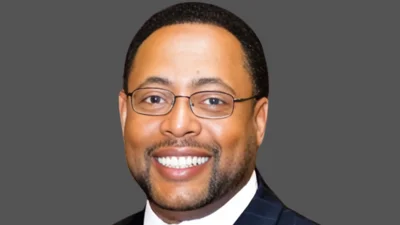Ronald Johnson, U.S. Senator from Wisconsin | Wikipedia
Ronald Johnson, U.S. Senator from Wisconsin | Wikipedia
U.S. Senator Ron Johnson (R-Wis.) has proposed the Eliminate Shutdowns Act, a legislative measure intended to prevent future government shutdowns by automatically extending federal funding in two-week increments at current levels until appropriations are passed. Johnson outlined his plan in an op-ed published by The Wall Street Journal.
"With government funding and functioning assured, Congress would no longer have to spend weeks and months arguing over how to keep government departments open after failing to pass appropriation bills," said Sen. Johnson.
Johnson emphasized the need for a permanent solution to what he described as recurring budgetary turmoil. "Fortunately, this turmoil can be avoided permanently by passing the Eliminate Shutdowns Act. Anyone voting 'no' is voting to continue budgetary chaos and should be held accountable by the American people," he said.
In his op-ed, Johnson noted that since 2011, there have been three government shutdowns, 55 continuing resolutions, and 12 instances of increasing or suspending the debt ceiling. During this period, the national debt rose from $14 trillion to $37 trillion. He referenced his previous support for a similar bill in 2019 that passed committee but did not advance further in Congress.
Johnson explained that concerns about higher spending associated with earlier proposals were addressed in his new bill: "My new bill simply provides for automatic two-week rolling continuing resolutions for any department for which an appropriation bill or longer-term continuing resolution hasn’t been passed. This would keep spending flat by prorating the previous year’s spending level."
He argued that this approach would allow Congress to focus on areas of agreement while avoiding artificial deadlines: "Instead, Congress could focus on areas of agreement, pass those appropriations, and then horse-trade on areas of disagreement. There would be no artificial deadlines, only the pressure of working with the other side to fund each other’s priorities. It’s impossible to say exactly how this would play out, but could it be any worse than the current situation?"
Johnson also advocated for converting appropriations into multiyear cycles as a main priority: "We should admit that Congress simply isn’t capable of passing 12 individual appropriation bills each year. Instead we should draft, debate and pass six two-year appropriations on a rotating basis every year." He suggested allowing oversight during nonappropriation years or considering four three-year appropriations cycles.
Discussing recent budget negotiations and partisan differences over spending levels, Johnson wrote: "The fighting over funding fiscal 2025 lasted six months. No one can predict how long we will be at loggerheads trying to fund 2026... At least this time a Republican administration will manage the shutdown in a way that minimizes harm to the nation. Democrats take the opposite approach, looking for ways to inflict as much pain as possible for political advantage.”
Senator Johnson has maintained electoral support throughout his career; he won reelection against Mandela Barnes in 2022 with just over half of the vote (50.4%), following previous victories against Russ Feingold in both 2010 (51.9%) and 2016 (50.2%).






 Alerts Sign-up
Alerts Sign-up